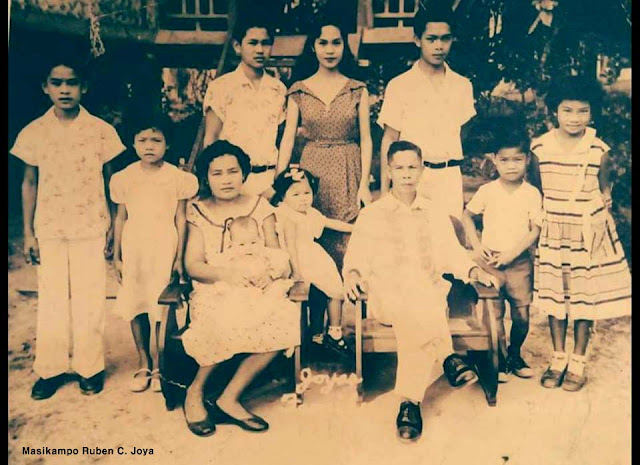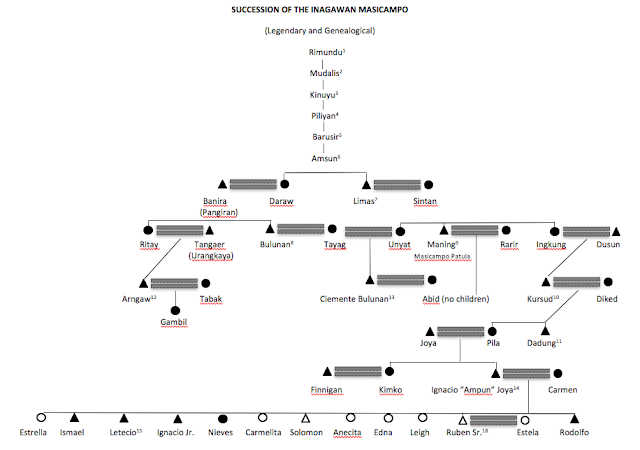
The Joya family stands as one of the surviving noble lines of the Tagbanua as direct descendants of the Masikampo lineage. Members of the family remain in Aborlan connected with the indigenous peoples of Southern Palawan. The late Ignacio "Ampun" Joya was the first born of Rafaela "Apo Pila" Cursod and Bantol Joya . He had a younger sister Quintera "Kimko" Joya who was married to the renowned Thomasite teacher John H. Finnigan . Aside from being the leader of the tribes, Ampun Joya was a teacher, a rancher and served as the town Mayor of Aborlan. He married Carmen Cojamco , a mixed Cuyuno-Tagbanwa, from Inagawan. They had 12 children and numerous grandchildren. The family lived in a place called "Kalampisaw"- a hilly area by the center of the town. Masikampo Ampun Joya donated lands to build the old municipal building and the Aborlan Catholic Church.

